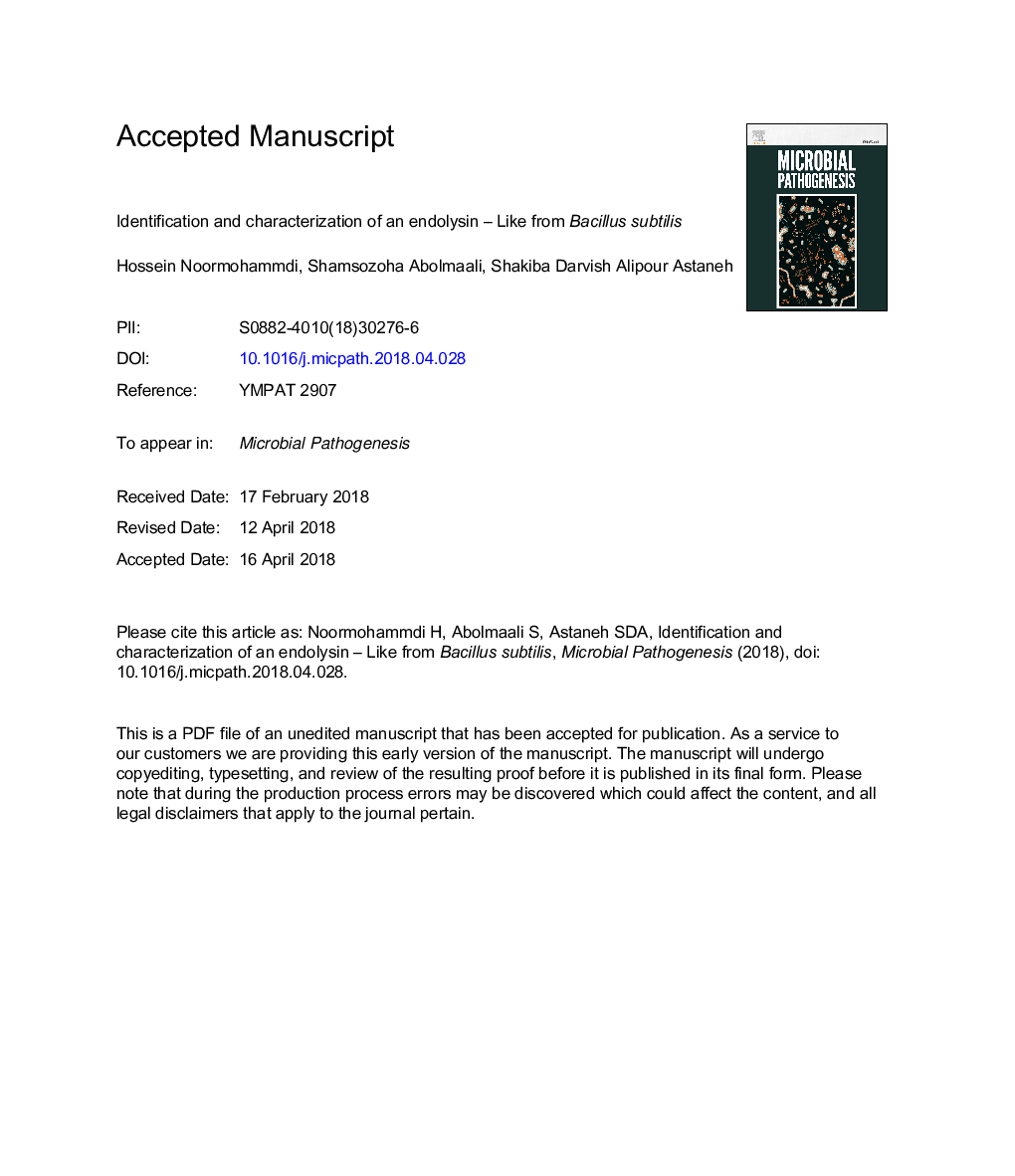| Article ID | Journal | Published Year | Pages | File Type |
|---|---|---|---|---|
| 8749505 | Microbial Pathogenesis | 2018 | 21 Pages |
Abstract
Drug-resistant Gram-positive pathogens have been a rising risk in hospitals and food industries from the last decades. Here in, the potential of endolysin production in Dasht Desert Bacterial Culture Collection (DDBCC), against indicator bacteria, was investigated. DDBCC was screened against autoclaved-indicator bacteria; Streptococcus faecalis, Streptococcus pyogenes, Bacillus sp, Bacillus subtilis and Staphylococcus aureus as the substrates for the endolysin enzymes. The endolysins were produced in BHI medium followed by ammonium sulfate purification. Peptidoglycan hydrolytic activity was tested by zymogram method. Lysogenic bacteria were induced by 0.1â¯Î¼g/ml mitomycin C for bacteriophages extraction. The lysogenic bacteria inhibited S. pyogenes, S. faecalis, Bacillus sp. and B. subtilis. The strain DDBCC10 was selected for further experiments on its higher and specific activity against the cell wall of S. faecalis. The highest activity for the endolysin was obtained at 50-60% ammonium sulfate saturation as 8 U/ml. Lys10, a 22â¯kDa enzyme, digested the cell wall of S. faecalis in 15â¯min while the whole phage from DDBCC10 could form plaque on S. faecalis and S. pyogenes. In a Transmission Electron Microscopy assay (TEM), the phage was distinguished as a member of Siphoviridae. Here; Lys10 is introduced as a new biocontrol agent against S. faecalis for therapeutics, disinfection, and food preservatives purposes at a much lower expense than recombinant endolysins.
Related Topics
Life Sciences
Immunology and Microbiology
Microbiology
Authors
Hossein Noormohammadi, Shamsozoha Abolmaali, Shakiba Darvish Alipour Astaneh,
